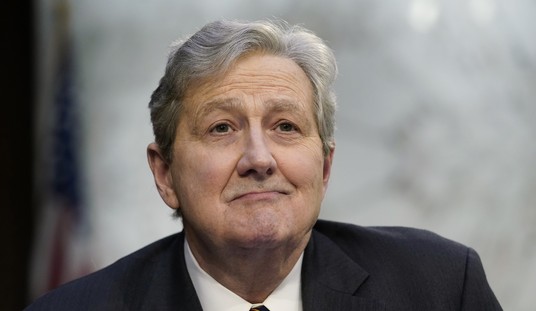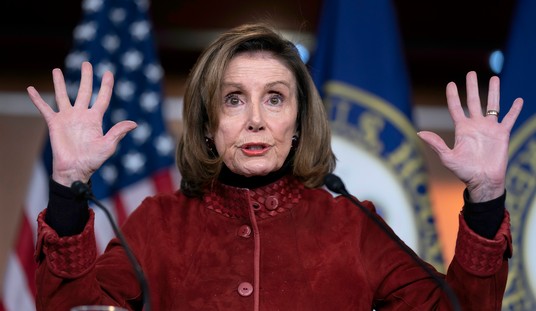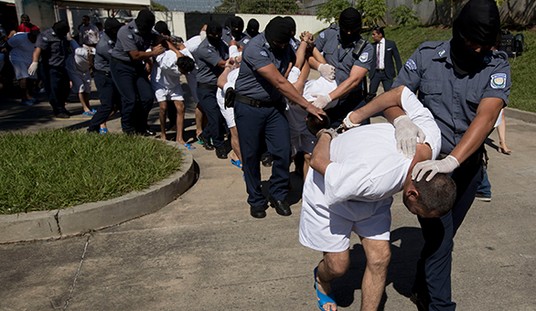
At 7am Sunday morning, Pennsylvania State University president Rodney Erickson released a statement announcing that the statue of Joe Paterno that has stood outside Beaver Stadium since 2001 would be removed. By half-past eight, the job was finished, and a football legend cast in bronze no longer adorned the stadium grounds.
Removing the statue was the correct move, and one that had to be made — but it wasn’t enough. ESPN.com’s Adam Rittenberg writes that “keeping the Paterno statue would only reinforce the perception that the school can’t acknowledge the gravity of the scandal.” The flip side to this coin is obvious, though. Aside from commissioning the Freeh report (and relieving Joe Paterno of his coaching duties last fall), Penn State’s leaders have taken no overt action to impose or acknowledge the deep consequences that must follow the unimaginable acts that took place within the football program on Paterno’s watch. If they think merely cosmetic actions like taking down a statue (or renovating the showers where some of Sandusky’s child rapes took place) will make this issue go away any faster or with any less depth of consequence, then there has been no change whatsoever in the inability of Penn State’s leaders to “acknowledge the gravity of the scandal.”
On Monday, we will find out the NCAA’s opinion of that gravity. CBS News has reported that president Mark Emmert will announce an “unprecedented” level of “corrective and punitive” penalties against the school. As ESPN college football reporter Joe Schad notes, “these sanctions were not self-imposed or negotiated. This is Emmert taking a stand he felt he had to due to horrors in Freeh Report.”
The “horrors” contained in that report should lead to only one outcome: the doors should be closed and windows boarded up on the Penn State football program, for years if not forever.
The “death penalty” hasn’t been seen in college football since the late 1980s, when the NCAA canceled Southern Methodist University’s 1987 season and prohibited home games from being played in 1988, while slashing scholarships and prohibiting recruiting until fall of the latter year. SMU’s crimes included recruiting violations, paying players from a booster-fed slush fund, and lying to NCAA officials. The penalty, the harshest ever meted out by the NCAA, was imposed for the purpose of “eliminat[ing] a program that was built on a legacy of wrongdoing, deceit and rule violations.”
While they remain the worst of their kind to have been exposed and dealt with by the NCAA to date, SMU’s crimes pale in comparison to the horror show that went on behind the curtain of the Penn State football program during Jerry Sandusky’s molestation spree. As Josh Trevino has noted, handing down the death penalty to Penn State’s football program would be a similar example of “an institutional consequence for institutional corruption.”
Entirely A Football Scandal
The argument that this scandal does not qualify for the NCAA’s “lack of institutional control” tag (on the grounds that it isn’t a football scandal and didn’t provide a “competitive advantage” to Penn State’s program) simply doesn’t hold water. The horrors that took place at State College are entirely a football scandal.
This is entirely a football scandal because, for 61 years, Joe Paterno wasn’t just the head coach of the Penn State football team; he was Nittany Lion football. The culture he created, within which “the football program was…’an island,’ where staff members lived by their own rules,” not only allowed a child rapist to thrive over a period of decades, but became so valuable to Paterno, and so identified with him personally, that he was willing to sweep unspeakably vile actions within his own program under the rug not only after they happened, but as they were ongoing, and with no sign whatsoever that they would do anything but continue in the future. As the Freeh report noted, even the janitors working in the football complex knew of Sandusky’s rampant child rape, and even they were afraid to speak up about it, because they knew full well that their jobs would be quickly and quietly sacrificed at the altar of Paterno’s legacy and program.
As Rick Reilly wrote a week ago:
Here’s his true legacy: Paterno let a child molester go when he could’ve stopped him. He let him go and then lied to cover his sinister tracks. He let a rapist go to save his own recruiting successes and fundraising pitches and big-fish-small-pond hide.
Here’s a legacy for you. Paterno’s cowardice and ego and fears allowed Sandusky to molest at least eight more boys in the years after that 1998 incident — Victims 1, 2, 3, 4, 5, 8, 9 and 10. Just to recap: By not acting, a grown man failed to protect eight boys from years of molestation, abuse and self-loathing, all to save his program the embarrassment. The mother of Victim 1 is “filled with hatred toward Joe Paterno,” the victim’s lawyer says. “She just hates him, and reviles him.” Can you blame her?
This is entirely a football scandal because, according to Freeh, it was Sandusky’s continued “affiliation with the university’s prominent football program” (even after his retirement) that “empowered” him “to attract potential victims to the campus and football events.” The Second Mile organization, Sandusky’s stalking ground for child rape victims disguised as a charity, enjoyed close ties to the Penn State football program (including marketing and co-branding opportunities). Further, when university administrators finally decided — in February 2001 — to take the issue of Sandusky’s child rape to the Department of Public Welfare, Paterno interceded on the rapist’s behalf, convincing Penn State leaders not to take the issue to the authorities.
This is entirely a football scandal because of the reasoning behind the cover-up, and the complete lack of regard for the victims by the man who was synonymous with Penn State’s program. The Freeh committee’s “most saddening and sobering finding” was the “total disregard for the safety and welfare of Sandusky’s child victims by the most senior leaders at Penn State. The most powerful men at Penn State failed to take any steps for 14 years to protect the children who Sandusky victimized. [Paterno et al.] never demonstrated, through actions or words, any concern for the safety and well-being of Sandusky’s victims.” Freeh also noted that, “although concern to treat the child abuser humanely was expressly stated [by Paterno and other officials], no such sentiments were ever expressed by them for Sandusky’s victims.”
Read that paragraph again: Paterno’s number one concern in all this, aside from protecting his beloved program, was that Sandusky be treated “humanely.” The iconic coach didn’t just neglect to use such verbiage in regard to those victimized by his program; he neglected to show any concern for them whatsoever, to the point that he personally and intentionally thwarted administrators’ plans to go to child welfare over Sandusky’s molestation. Penn State’s football program, synonymous with Paterno’s own reputation and legacy, had to come first, and if protecting that required the sacrifice of a growing number of child rape victims, so be it.
Actions Have Consequences
Even as a rabid college football fan, I could not agree more with Dan Gainor’s declaration that “Penn State covered up child rape to protect its stupid football program. Kids matter. Football does not,” save for one small detail: football matters immensely to Penn State’s bank account. In the 2009-10 school year, the Nittany Lions football program brought in $50 million in revenue (good for third-most in the nation), an amount that made up almost half of the university’s entire athletic revenue for the year.
Shutting down Penn State’s program would hurt the university financially, including student-athletes in other sports whose operating budgets are supplemented by football revenue. While this is unfortunate, it is an unfortunate fact of life that consequences are often felt by those who did not commit an offense. The athletes currently preparing for Penn State’s 2012 football season are no more responsible for Sandusky’s rapes or Paterno’s coverup than the athletes at the University of Southern California are responsible for the payments made to Reggie Bush and his family that resulted in the two-year bowl ban they are currently experiencing. Further, it is critical that we acknowledge that dealing with the decades of child rape that took place within the football program is more important than whether sports like men’s track and field or women’s swimming continue to receive funds provided by football revenue.
Aside from vacating wins ex post facto (a largely meaningless gesture), this is the way NCAA penalties work. They come down on athletes competing long after the fact, precisely because they are intended to punish a program for its transgressions rather than individual or collective athletes. This is why athletes are allowed to transfer when their program is hit with debilitating sanctions: because, while those consequences do affect players, they are aimed at institutions and programs.
In a business that sees close to 100% turnover every four to five years, this is the best way the NCAA has come up with to deal with transgressions that have almost always happened at an earlier time. It’s correct that innocent athletes should not be prevented from competing outright because of this scandal; however, it’s also true that there is no God-given right to do so in a Penn State uniform. The school’s football players should be granted their immediate release and allowed to transfer to any college that will take them, as should competitors in any other athletics at the university that will be crippled by the loss of Nittany Lion football revenue. It may cause a mass exodus of student-athletes from Happy Valley, but years of systemic child rape enabled and protected by the football program demand the harshest possible penalty.
The Worst Scandal in NCAA History
Southern Methodist University’s football program was effectively killed for widespread violations of the NCAA’s rules regarding players’ amateur status, cash incentives and benefits, and a lack of cooperation with investigators.
At Penn State, the football program provided both opportunity and cover for decades of systemic and repeated child rape. It afforded a rapist the prestigious association he needed to attract victims and the setting within which to repeatedly rape them. Its master, Joe Paterno, did everything from turning a blind eye to intentionally obstructing efforts to deal with Sandusky’s repeated sexual abuse in an effort to maintain his beloved program’s power, prestige, and reputation. That power, prestige, and reputation, in turn, continued to feed the vicious cycle of further enabling Sandysky to rape children, while allowing Paterno the influence necessary to cover for him.
Here’s Howard Bryant:
There are times when the entire monument must be razed in order to be rebuilt if it is to have any moral value. This is one of those times. To allow Penn State to continue playing football when Southern Methodist University lost its program for something as common as a recruiting scandal is to condone the past and enable the future. It is to suggest that all the next university in trouble need do is to make the right public relations moves.
For Penn State to open the season Sept. 1 versus Ohio when the University of Southwest Louisiana lost its basketball program for two years over academic fraud and recruiting violations after Spanier, Schultz, Curley and Paterno responded to repeated child rape by negotiating not only an honorable discharge for Sandusky, leaving him financially intact, respected and elevated, but also for ways for Sandusky to continue to have contact with young children would show an equally striking lack of regard for the victims.
[…]
Perhaps there was nothing anyone could do to keep Sandusky from striking once, but Spanier, Schultz, Curley and, yes, Paterno had the power to prevent it from happening again. They demonstrated instead that the carrot was more important. They allowed the bait to work.
ESPN’s Joe Schad has reported that the NCAA does not plan to hit Penn State with the death penalty, but that the penalties the association does plan to announce “are considered to be so harsh that the death penalty may have been preferable.” It’s difficult to imagine a worse penalty, or a more appropriate one, than shuttering the Nittany Lions’ football program.
This is without doubt the worst scandal in NCAA history, and the bottom line is simple: the collegiate athletic association must demonstrate that it too understands that child rape is a worse offense than recruiting violations and payments to athletes. It is entirely a football scandal, and justice demands that, as a result, football at Penn State be shut down. The question shouldn’t be “whether,” but “for how long.”













Join the conversation as a VIP Member